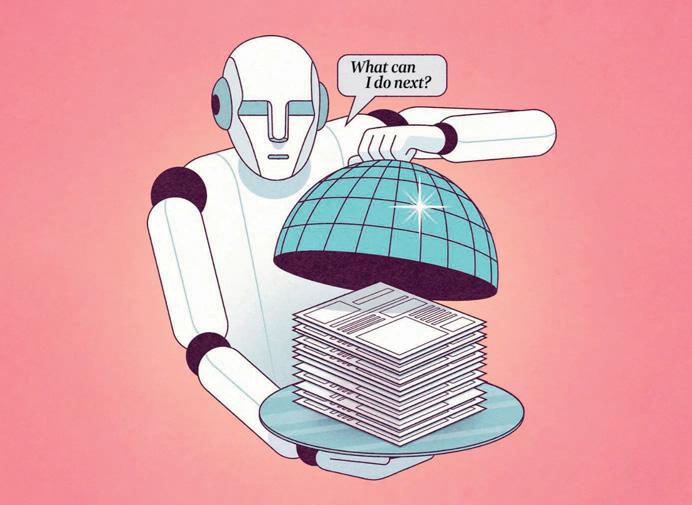This is a new horizon with radical implications. For the first time, technology isn't just offering tools for humans to do work. It's providing intelligent, scalable digital labor that performs tasks autonomously. Instead of waiting for human input, agents can analyze information, make decisions, and take action independently, adapting and learning as they go.
Take, for example, a large retailer during the holiday season. Traditionally, human workers or preprogrammed software might handle customer inquiries or inventory updates. But now, intelligent digital agents can respond to customer questions in real time, monitor stock levels, reorder inventory, and even coordinate with shipping providers—all without human intervention. These agents are enabling an entirely new scale of operations that was previously not possible.
This shift to intelligent digital labor is already unlocking capacity across industries. It's no longer constrained by human availability or physical limits, allowing businesses to scale their operations while driving down costs and improving responsiveness, or by geographical limits—opening opportunities previously limited by location.
Like any change of this magnitude, the shift to agents comes with clear challenges and understandable fears. We need to make sure AI systems are built with trust, accountability, fairness, and transparency as core values. We need to make sure, as AI transforms how we work, that we invest in the training, creativity, and critical thinking skills that are uniquely human. And recognizing AI’s impact on our carbon footprint, we need to make sure that we’re investing in sustainability, eco-preneurs, and nature-based solutions.
> Agents are redefining how humans work, live, and connect
If we face and address these concerns, it's possible to envision new levels of abundance enabled by an expansible digital workforce that learns and grows more capable all the time.
The potential of agents isn't limited to businesses—these technologies have the potential to profoundly enhance the lives of individuals as well. We'll all have access to specialized agents that can navigate different parts of our lives. For example, every student will have an always-on, personalized tutor—an agent embedded in their everyday technology that acts as an intelligent companion guiding them throughout their learning journey at every stage. Our personal agents, communicating with other agents, will help manage our daily routines, from ordering groceries for us to scheduling appointments.
AI agents are already transforming how we deliver health care. We know that doctors and nurses are facing tremendous burnout, and there are provider shortages in many communities. As one of the world's largest medical systems has recently discovered using Salesforce's Agentforce platform, agents can alleviate administrative burdens, improving patient communication while giving providers the space to focus on complex cases that demand their expertise. Over time, patients will have access to an AI agent that reaches out to check on you after a procedure, reminding you to follow up on test results, and asking if you have any unexpected reactions that need to be addressed. It will monitor patient progress and even reschedule labs or appointments as needed, all while maintaining a detailed understanding of the patient's medical history and ongoing treatment.
Of course, this new Agentic Era, like every technology throughout history, will bring about disruptions and risks that we ignore at our peril. Some companies will struggle to adapt. Nearly every job will change in some ways. And, yes, some will go away. In the past, we've seen companies and sometimes entire industries rise and fall with new inventions—jets, satellites, the internet, the smartphone, renewable energy. Ultimately, however, these innovations create far more new jobs that they displace. In 1950, for example, 43 million Americans had jobs. By 2020, over 152 million Americans were employed. Multiple factors played a role, but that is more than 100 million new jobs in a period of profound technological change, many in categories that did not exist before. The key, as always, will be to invest in the education and training that equips workers and young people with the skills to succeed in the new jobs and industries to come.
The benefits AI agents bring both individuals and businesses will far outweigh the initial disruptions. After all, growth in a country's GDP is the product of growth in the labor force and in productivity. With the labor force stagnating or even shrinking in some regions and industries, countries will need to rely more than ever before on boosting productivity, especially in the services sector, which is now the bulk of modern economies. Today, with growth in the human labor force stagnant in many places, exceptional productivity driven by a digital-agent force is vital for GDP growth. Agents amplify human ...


